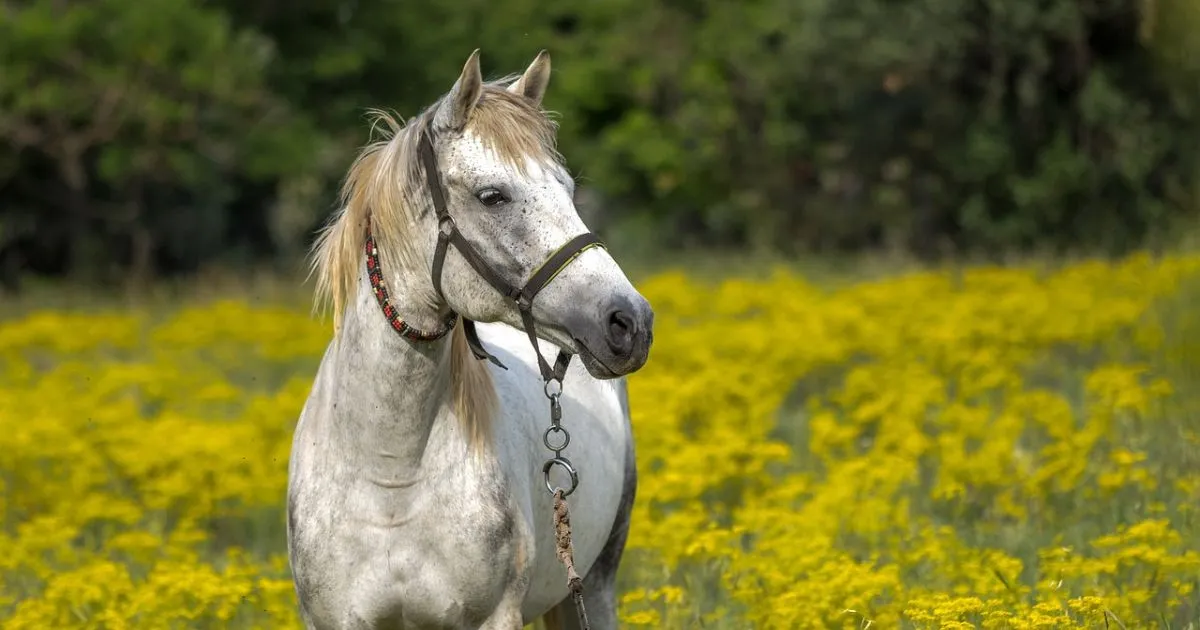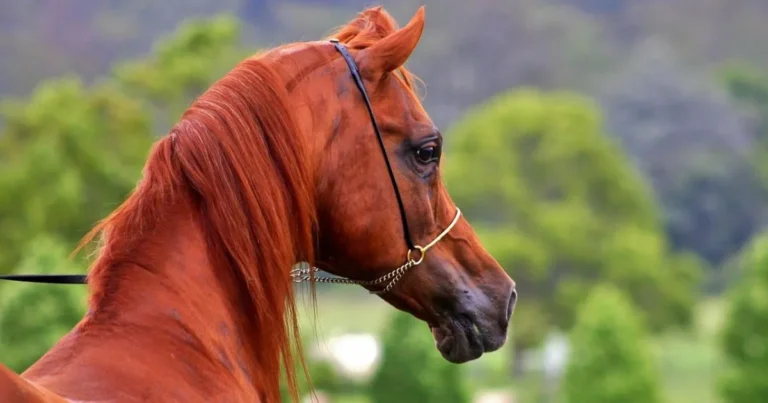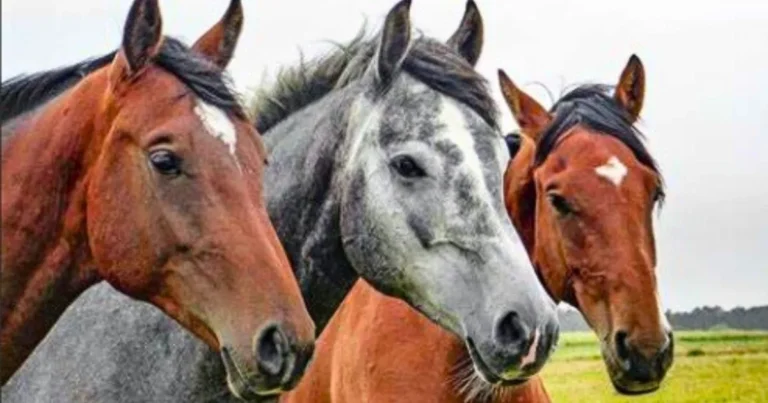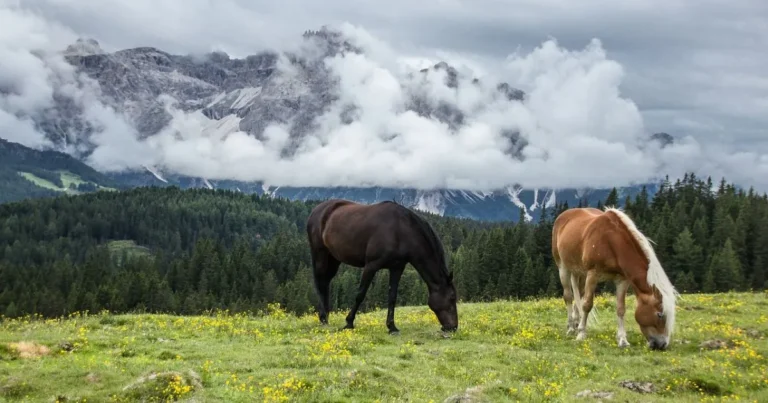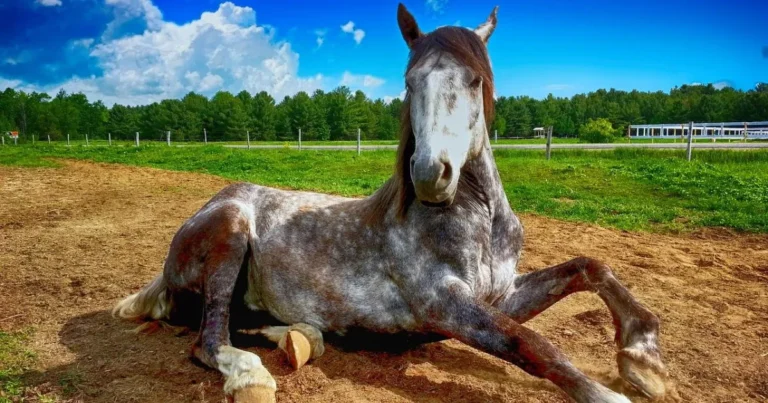How Long Does a Horse Live? Lifespan by Breed & Care Tips
Table of Contents
Horses have won our hearts with their thundering hooves and gentle nuzzles. They offer unwavering companionship. As an equine enthusiast, I’ve seen them age gracefully, each year telling a story of resilience and strength.
Knowing how to convert horse years to human years is key for caring for them. Domesticated horses can live 25-30 years with the right care. Wild horses, however, live shorter lives, from 15-20 years.
Exploring equine age conversion opens a world where breed, environment, and care greatly affect a horse’s life. Whether you’re new to horse ownership or experienced, understanding what affects your horse’s lifespan is crucial. It helps you give them the best care possible.
Each horse breed, from Arabian to Clydesdale, has its own traits that influence their lifespan. Learning about these differences helps you support your horse at every stage of their life.
Understanding Horse Lifespan Basics
Exploring the world of equine life expectancy shows us how long horses can live. A horse lifespan calculator helps owners understand their horse’s potential years. Horses are amazing, with lifespans influenced by many factors.
Horses usually live between 25 to 30 years. But, with the right care, many can live longer. Their life expectancy depends on important factors that affect their health and how long they live.
Average Life Expectancy in Domestic Horses
Domestic horses have many advantages that help them live longer:
- Regular veterinary care
- Consistent nutrition
- Protection from predators
- Controlled living environments
Wild vs. Domesticated Horse Longevity
Wild horses and domesticated horses have big differences in lifespan. Wild horses live shorter lives because of tough environments and less medical care.
| Horse Type | Average Lifespan | Primary Challenges |
|---|---|---|
| Wild Horses | 15-20 years | Harsh environment, limited food, predators |
| Domesticated Horses | 25-30 years | Regular care, controlled diet, medical support |
Size and Breed Impact on Lifespan
Interestingly, smaller horse breeds and ponies tend to live longer. Some miniature horses and ponies can live up to 40 years. On the other hand, larger breeds usually have shorter lifespans.
Using a horse lifespan calculator can help estimate your horse’s potential years. It considers breed, size, and health conditions.
Horse Human Years: Age Conversion and Understanding
Figuring out how old a horse is in human years can be confusing. There’s no direct way to convert it, but horse owners use special charts. These charts help understand a horse’s age and what care it needs.
Horses age differently than humans. Their growth stages don’t follow our aging pattern. Here’s a general guide for comparing horse years to human years:
- First horse year equals approximately 15 human years
- Second horse year is comparable to 9 human years
- Subsequent years average around 5 human years per horse year
The breed, size, and health of a horse affect these conversions. Smaller horses live longer, while bigger ones might not. A detailed horse age chart can give deeper insights into your horse’s aging.
Vets suggest using these estimates as guidelines, not strict rules. Every horse is different, and many factors influence their life span and health.
“Understanding your horse’s age helps you provide targeted care throughout their life stages.” – Equine Health Experts
Keep in mind that horse age charts are just estimates. Regular vet visits, good food, and care are key to your horse’s health. Age conversions are less important than these factors.
Life Stages of Horses
Knowing how horses age is key to giving them the best care. Horses go through different stages, each with its own needs. From birth to old age, they change a lot physically and behaviorally.
From Birth to Weaning Stage
The first stage starts at birth. Young horses grow fast and learn a lot. Important moments include:
- Standing within 1 hour of birth
- Nursing from the mare
- Learning social behaviors
By 4-6 months, they are weaned. This is a big change for them.
Young Horse Development
After weaning, horses keep growing. This stage is all about:
- Continued physical growth
- Developing muscle and coordination
- Initial training and socialization
By age 2-3, they are almost as big as adults.
Adult and Senior Years
Adult horses are in their best shape from 4-15 years. They are ready for riding, racing, or work. Around 15+, they start to get older and need special care.
| Life Stage | Age Range | Key Characteristics |
|---|---|---|
| Foal | 0-6 months | Rapid growth, dependent on mare |
| Yearling | 1-2 years | Continued development, initial training |
| Adult | 4-15 years | Peak physical condition |
| Senior | 15+ years | Reduced activity, specialized care needed |
Each stage of a horse’s life needs special care. This ensures they stay healthy and happy.
Factors Affecting Horse Longevity
Knowing what affects your horse’s life can help them live longer and happier. A horse age calculator looks at many important things. These things help figure out how long your horse might live.
Genetics are a big deal for a horse’s life span. Some breeds live longer than others. Your horse’s genes can make them more likely to get certain health issues or stay healthy.
- Breed-specific genetic traits
- Inherited health predispositions
- Bloodline characteristics
Your horse’s surroundings and care are also very important. A horse age calculator might look at these things:
- Quality of daily nutrition
- Regular veterinary check-ups
- Exercise and activity levels
- Living conditions
Good healthcare is key to a long life. Regular dental care, vaccinations, and early medical help can add years to your horse’s life. Preventative care is always more effective than reactive treatment.
By knowing these factors and using a horse age calculator, you can help your horse stay healthy for a long time.
Common Health Issues Impacting Lifespan
Your horse’s health is key to its life span. Knowing about medical issues can help you keep your horse healthy. This might even add years to its life.
Horses face many health problems that can shorten their lives. Spotting these issues early and getting vet help is vital. It keeps your horse happy and healthy.
Colic and Digestive Problems
Digestive issues are a big threat to horses. Colic, or stomach pain, is especially dangerous. It can lead to serious intestinal problems and even death if not treated fast.
- Can cause severe intestinal complications
- Potentially fatal if not treated quickly
- May result from diet, stress, or underlying health conditions
Musculoskeletal Conditions
As horses get older, their bones and muscles get weaker. Arthritis and other joint problems can make moving hard and painful.
- Degenerative joint diseases
- Ligament and tendon injuries
- Chronic lameness issues
Age-Related Health Concerns
Older horses have special health issues. These can affect their life span. Taking care of them early is very important.
- Cushing’s disease
- Dental deterioration
- Metabolic disorders
Regular vet visits, good food, and care can help. They can reduce health risks and maybe add years to your horse’s life.
Essential Care Tips for a Longer Life
To make your horse live longer, you need a detailed care plan. A horse lifespan calculator shows how care affects their life. With smart health management, you can extend your horse’s life and make it better.
Important care tips include:
- Regular veterinary check-ups to catch health problems early
- Consistent dental care to avoid nutrition issues
- Comprehensive hoof maintenance
- Tailored nutrition plans
- Age-appropriate exercise routines
Preventative care is key to a longer life for your horse. A horse lifespan calculator helps track health interventions. Regular checks lead to better health management.
Vets suggest a custom health plan for your horse. This plan should cover breed-specific risks, nutrition, and consistent care.
“Good health is the foundation of a long and happy horse life.”
By focusing on your horse’s care, you can add years to their life. They’ll stay healthy, active, and full of life at every stage.
Nutrition and Diet Requirements
Knowing what your horse needs to eat is key to keeping them healthy and long-lived. A good diet can greatly improve your horse’s health, especially as they grow older. This is shown in a typical horse age chart.
Proper Feeding Guidelines
Your horse should mainly eat high-quality hay. Their diet needs to change based on several important factors:
- Age and development stage
- Activity level
- Overall health condition
- Body weight and metabolism
Dietary Adjustments for Senior Horses
As horses get older, their diet needs to change. Senior horses need special food that helps with:
- Reduced digestive efficiency
- Potential dental issues
- Lower metabolism
- Decreased muscle mass
“Proper nutrition is the foundation of equine health and longevity” – Veterinary Nutrition Experts
Supplements and Special Needs
Special supplements can help meet your horse’s health needs. Consult with a veterinary nutritionist to create a diet plan that fits your horse’s age and health.
Supplements like joint support, digestive aids, and vitamins can be tailored to your horse’s needs.
Exercise and Activity Recommendations
Knowing how much exercise horses need is key to keeping them healthy. Their activity level greatly affects their longevity and well-being. Just like humans, horses need exercise plans that change as they age.
Young horses need different exercise than older ones. Experts suggest starting with gentle activities that fit their growth stage. When thinking about horse years to human years, remember these exercise tips:
- Foals and Yearlings: Light play and controlled movement
- Young Adults: Structured training programs
- Mature Horses: Regular, consistent exercise
- Senior Horses: Low-impact activities
Make sure the exercise intensity fits your horse’s health. A vet can create a workout plan based on age, breed, and health. Activities like gentle riding, lunging, and ground training are great for keeping them active without stress.
Exercise offers many benefits, including:
- Muscle strength maintenance
- Joint flexibility
- Mental stimulation
- Weight management
Every horse is different. Watch how they react to different activities and adjust as needed. Regular vet visits will help refine your exercise plans as they grow older.
Conclusion
Your horse’s life is a special journey filled with many factors. Knowing about horse human years and equine age conversion helps you care for them better. With the right nutrition, health care, and lifestyle, horses can live into their 20s and 30s.
To make your horse live longer, take action early. Regular vet visits, good food, enough exercise, and careful care are key. While genetics matter, your choices can greatly improve their health and happiness.
As your horse ages, remember they are all different. Equine age conversion gives a guide, but each horse ages in their own way. Listen to their needs, adjust your care, and always put their well-being first.
By caring for your horse in a complete way, you can help them live a long, healthy life. Your love, knowledge, and care are the best things for them. They will grow from a young foal to a wise old friend.

